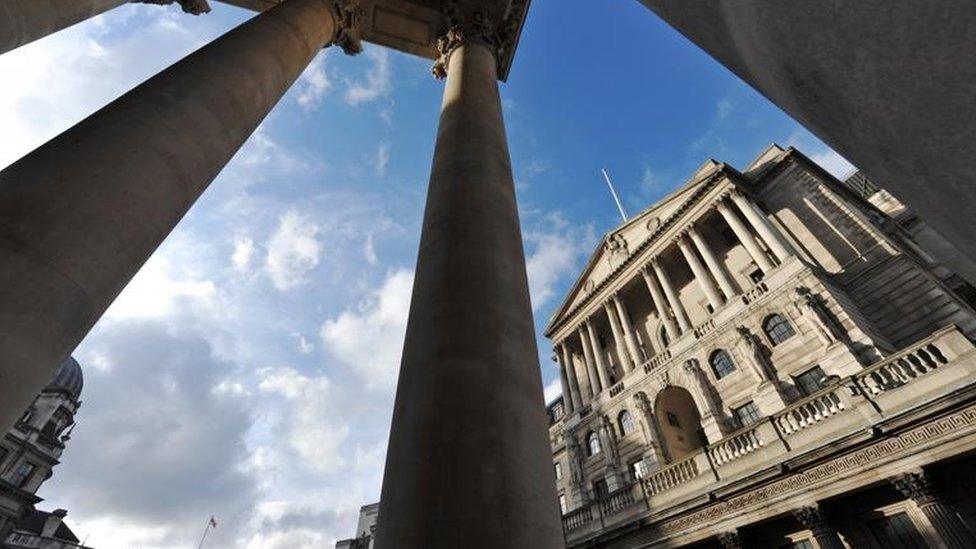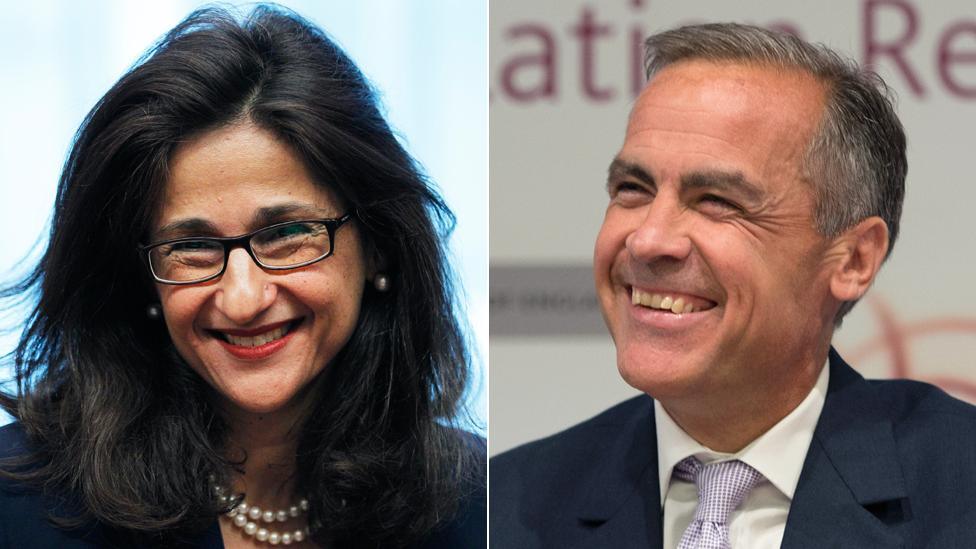Bank of England votes 8-1 to keep UK rates at 0.5%
- Published

The Bank of England has voted 8-1 to keep interest rates on hold at 0.5%.
The bank also lowered its estimate for the UK's economic growth in the third quarter of this year from 0.7% down to 0.6%.
For the second month, Ian McCafferty was the only one of its Monetary Policy Committee (MPC) members to vote for an increase in rates.
Policy makers also said that the risks from the slowing Chinese economy had increased since August.
In its summary,, external the committee said: "Developments since then have increased the risks to prospects in China, as well as to other emerging economies."
It added: "Global developments do not as yet appear sufficient to alter materially the central outlook described in the August Report, but the greater downside risks to the global environment merit close monitoring for any impact on domestic economic activity."
It said that the reason for reducing its UK growth forecast had been the latest run of poor manufacturing and industrial production figures.
Business divided
Despite this, the MPC remained optimistic about the UK economy.
It said: "Domestic momentum is being underpinned by robust real income growth, supportive credit conditions, and elevated business and consumer confidence.
"The rate of unemployment has fallen by over two percentage points since the middle of 2013, although that decline has levelled off more recently."
British business was divided as to whether the Bank should be putting up interest rates. James Sproule, chief economist at the Institute of Directors, said: "This far into the recovery, it is worrying that interest rates are still at an extraordinary low.
"The ability to cut rates and stimulate the economy in times of instability is crucial, but with rates at their historic level of 0.5%, this is almost impossible."
But David Kern, chief economist at the British Chambers of Commerce, said: "Although earnings are edging up gradually, labour costs are not rising at a pace that should cause concern in the near future. Inflation is also likely to remain below the 2% official target until well into 2017.
"When major international organisations such as the World Bank and the IMF have warned against putting up interest rates, it would be premature and risky for the UK to consider such a step."
Cost pressures
The bank said Mr McCafferty alone of the nine-strong MPC had wanted to increase the main interest rate by 0.25%.
It said he believed that costs were likely to go up in the UK and lead to inflation overshooting the bank's target.
The bank said that interest rate rises, when they did come, would be slow.
"All members agree that, given the likely persistence of the headwinds weighing on the economy, when Bank Rate does begin to rise, it is expected to do so more gradually and to a lower level than in recent cycles," the statement said.
"This guidance is an expectation, not a promise."
However, while most economists earlier in the year had expected a rise in rates before 2016, opinion seems to be shifting.
Howard Archer, chief UK and European economist at IHS Global Insight, said: "An interest rate hike sometime in the first half of 2016 looks a pretty sure bet, but it currently seems a very close call as to whether the Bank of England moves around February, or holds fire until the second quarter.
"Thereafter, we expect interest rates to rise gradually to 1.25% by the end of 2016, 2% by the end of 2017 and 2.5% by the end of 2018."
- Published10 September 2015
